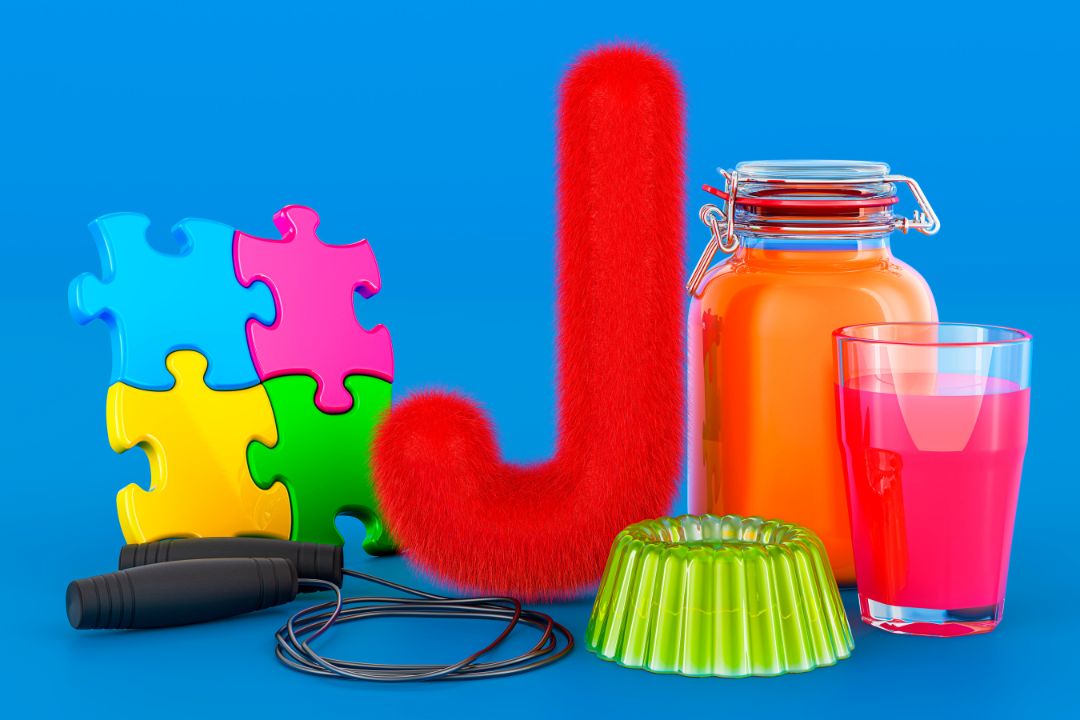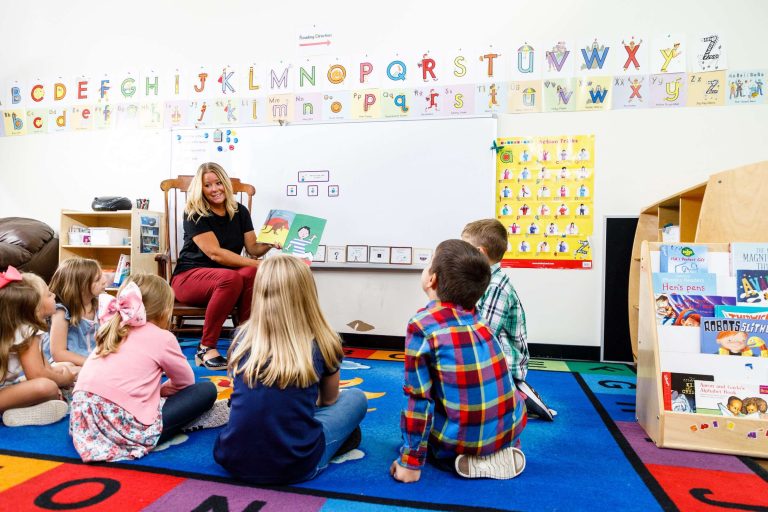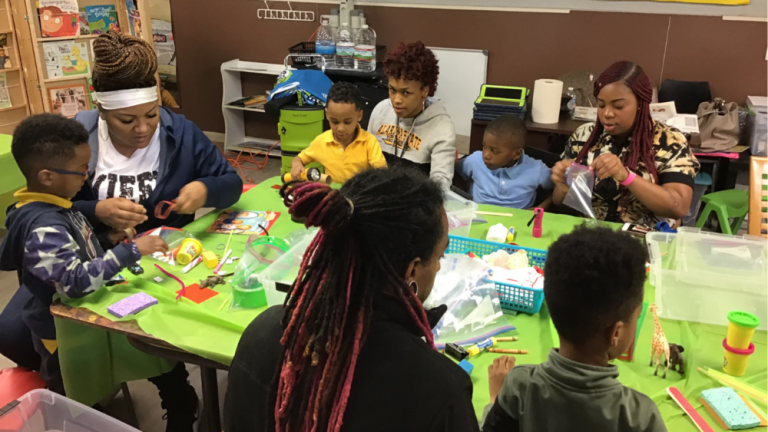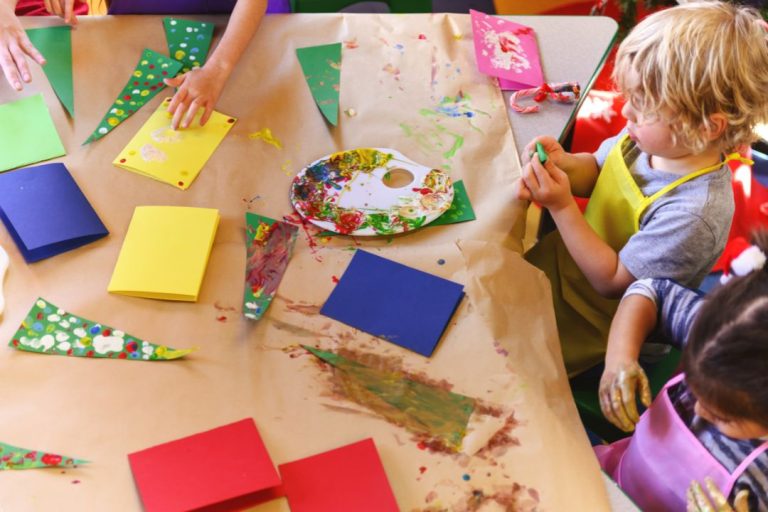J Words for Preschool: Power up your kid’s vocabulary!

J words for preschool are a useful and engaging way to help young children learn the alphabet. These words introduce them to new vocabulary and improve their language skills in a fun and interactive manner.
By incorporating J words into their daily activities, preschoolers can develop a strong foundation for reading and writing.
Boosting Vocabulary With J Words For Preschool
Boost your preschooler’s vocabulary with engaging J words! This fun and interactive resource helps children learn words like jelly, jungle, and jump, promoting early language development. From joyful activities to playful learning, our J Words for Preschool program is designed to make language learning exciting for young minds.
The Importance Of Early Language Development
Early language development plays a crucial role in a child’s overall cognitive, social, and emotional growth. It is during these early years that children are like sponges, eagerly absorbing information and language skills. By giving them a strong foundation in vocabulary, we can help nurture their curiosity and prepare them for future academic success.
How J Words Can Be Both Educational And Entertaining
Introducing J words to preschoolers not only expands their vocabulary but also adds an element of entertainment to their learning experience. J words like “jungle,” “jump,” and “jigsaw” will capture their imagination and spark their curiosity. By associating learning with fun activities, we encourage preschoolers to actively engage in language development.
Integrating Vocabulary Into Preschoolers’ Daily Routine
Integrating vocabulary exercises into a preschooler’s daily routine can significantly enhance their language skills. Below are some practical suggestions to incorporate J words:
- Create a word jar: Fill a jar with colorful paper strips containing J words. Each day, have your preschooler pick out a word and find objects or pictures starting with that letter sound.
- Alphabet scavenger hunt: Organize an alphabet-themed scavenger hunt where preschoolers search for items that start with the letter J, such as a juice box or a jacket.
- Storytime with J words: Choose books that emphasize J words and encourage your preschooler to point out words that start with the letter J. This interactive reading approach helps reinforce learning in a captivating way.
- Jigsaw puzzles: Engage your little one’s problem-solving skills by introducing jigsaw puzzles. Not only do they promote cognitive development, but they also provide opportunities to discuss J words related to the puzzle’s picture.
- Music and movement: Incorporate catchy songs featuring J words into your preschooler’s music playlist. Encourage them to dance, jump, and sing along while they learn new words and improve coordination.
By integrating vocabulary-building activities into their daily routine, we create a language-rich environment that supports their overall development.
Choosing The Right J Words
Choosing the right J words for preschool can make a significant difference in a child’s language development. It’s important to select age-appropriate words that are both engaging and educational. But how do we determine which J words are suitable for preschoolers? In this section, we will explore the criteria for selecting age-appropriate J words and how to strike a balance between complexity and usability. We will also provide examples of effective J words for preschool that children will enjoy learning.
Criteria For Selecting Age-appropriate J Words
When selecting J words for preschool, it’s crucial to consider several criteria to ensure they are suitable for little learners. Here are some important factors to keep in mind:
- Relevance: Choose J words that are relevant to the preschooler’s daily life and experiences. This helps them make connections and understand the meaning of words in context.
- Simplicity: Opt for simple J words that preschoolers can easily pronounce and understand. It’s important to avoid words that are too complex or abstract, as they may overwhelm or confuse young learners.
- Visual Appeal: Visuals are essential for preschoolers to grasp and remember new words. Select J words that can be associated with clear and relatable images or objects, sparking curiosity and imagination in the child’s mind.
- Sound Patterns: Consider J words that showcase different phonetic patterns. This helps preschoolers expand their understanding of sounds and lays the foundation for reading and writing.
- Engagement: Choosing J words that capture a child’s interest is crucial. Look for words that are fun, playful, and intriguing. This way, children will be excited to learn and use these words in their everyday conversations.
Balancing Complexity And Usability In Word Choice
In the process of selecting J words for preschool, striking a balance between complexity and usability is essential. While it’s important to introduce new vocabulary and challenge preschoolers, we must also ensure the words are accessible and usable for their age group. Here’s how to strike that balance:
- Vary Word Difficulty: Include a mix of easy, moderate, and slightly challenging J words. This gradual progression helps children develop their vocabulary without overwhelming them.
- Enable Context Learning: Introduce J words that can be easily understood within the context of a sentence or a story. This way, children can grasp the meaning and usage of the word naturally.
- Provide Support: Offer support and guidance, such as visual aids or gestures, to help preschoolers comprehend and use new J words. This scaffolding approach enhances their learning experience and boosts their confidence.
Examples Of Effective J Words For Preschool
Now let’s explore some examples of effective J words for preschool that meet the criteria mentioned above:
| J Words | Meaning | Example Sentence | Visual Aid |
|---|---|---|---|
| Jungle | A dense, tropical forest with a wide variety of trees, plants, and animals | The lion roars in the jungle. |  |
| Jellyfish | A gelatinous sea creature with long, trailing tentacles | The jellyfish glows in the dark. |  |
| Jigsaw | A puzzle made of many small, interlocking pieces | We completed the jigsaw puzzle together. |  |
These J words are age-appropriate, engaging, and align with the criteria we discussed earlier. By incorporating such words into preschool lessons and activities, we can enhance the language development and vocabulary skills of our little learners.
Engaging Activities With J Vocabulary
Vocabulary development is an essential aspect of preschool education. Engaging activities that incorporate J words can make learning fun and memorable for young children. Here are some interactive games, crafting sessions, and musical activities that can help reinforce their understanding of J vocabulary.
Interactive Games That Incorporate J Words
Interactive games are a fantastic way to captivate preschoolers’ attention while teaching them new words. Here are some J word games:
- Jigsaw Puzzles: Boost problem-solving skills and vocabulary at the same time by introducing jigsaw puzzles featuring various objects starting with the letter J. Encourage children to name the items as they assemble the pieces.
- Jungle Scavenger Hunt: Create an exciting scavenger hunt where children search for items related to the jungle, such as jaguars, monkeys, or juicy fruits with J names. This game promotes active participation and vocabulary recall.
- Jumping Jack Flash: Organize a hopscotch game with J words written on each square. Encourage children to pronounce the words as they jump onto the squares, making learning a playful and physical activity.
Crafting Sessions Focusing On These Words
Crafting sessions provide a hands-on approach to learning vocabulary. Here are some crafting ideas to explore J words:
- Jewelry Making: Engage preschoolers in designing their own jewelry using beads, yarn, and other craft materials. Encourage them to create bracelets or necklaces with jingle bells, jewels, or colorful jellybeans.
- Jigsaw Art: Distribute jigsaw puzzles made of cardboard or foam board to each child. Let them paint or color the puzzles with jocund colors, fostering creativity and vocabulary retention.
- Journal Creation: Provide blank journals and encourage children to decorate the cover with J words. They can cut out magazine letters or use markers to write their favorite J words, reinforcing vocabulary while creating personalized journals.
Musical Activities To Reinforce Learning
Music is a powerful tool for aiding memory retention. These musical activities will help reinforce J vocabulary:
- Jingle Sing-Along: Create a catchy tune that includes several J words. Have children sing along, emphasizing the words starting with the letter J. This activity enhances auditory recognition and facilitates word association.
- Jazz It Up: Introduce children to different instruments, such as the jazz drum, xylophone, or tambourine, and let them experiment with creating rhythmic sounds. Encourage them to use J words like “jazz,” “jingle,” or “joy” as they play.
- Jump and Name: Play upbeat music and instruct children to jump while saying a J word. Make it more challenging by requiring a new J word for each jump. This activity combines physical movement with vocabulary practice.

Tailoring J Words To Kids’ Interests
When it comes to teaching preschoolers, personalization is key. Children learn best when they are engaged and interested in the subject matter. As a parent or educator, one effective way to make learning enjoyable is by tailoring the curriculum to match the child’s interests. This not only captures their attention but also helps them retain and grasp new concepts more easily.
Identifying Your Child’s Interests For Personalized Learning
Understanding a child’s interests is the first step toward creating a personalized learning experience. Each child is unique, with their own set of likes and dislikes. By identifying what they are naturally drawn to, you can customize their learning journey to align with their interests.
In order to do this, observe your child in their natural element and notice what activities or themes spark curiosity and engagement. Are they fascinated by animals, vehicles, or superheroes? Do they enjoy exploring nature, playing with building blocks, or pretending to be chefs in their make-believe kitchen? By paying attention to their playtime choices, you can gain valuable insights into the subjects that will ignite their passion for learning.
J Words Related To Popular Preschool Themes
Once you have identified your child’s interests, it’s time to explore J words related to popular preschool themes. This not only helps expand their vocabulary but also makes learning more relevant and meaningful. Here are some J words that can be incorporated into various preschool themes:
| Preschool Theme | J Words |
|---|---|
| Animals | Jaguar, Jellyfish, Jackrabbit |
| Transportation | Jet, Jeep, Jumbo Jet |
| Food | Juice, Jam, Jelly |
| Nature | Juniper, Jasmine, Jungle |
By incorporating these J words into activities, crafts, and stories related to their interests, you can capture your child’s attention and make the learning experience more enjoyable.
Using Interests As A Bridge To New Words And Concepts
Interests provide an excellent bridge to introduce children to new words and concepts. Once you have established their preferred topics, you can gradually expand their vocabulary and knowledge by incorporating new J words that are related to their interests. For example, if a child is interested in animals, you can introduce them to words such as ‘jungle’ or ‘jackrabbit’. By associating these new words with something they already love, the learning process becomes more seamless and effortless.
Moreover, using their interests as a starting point allows you to introduce broader concepts. For instance, if your child is fascinated by transportation, you can introduce them to the concept of ‘journey’ or ‘destination’, expanding their understanding beyond the specific vehicles they are interested in. Making these connections helps children grasp abstract ideas more effectively.
Track The Vocabulary Progress
As preschoolers embark on their language development journey, it is important to track their vocabulary progress. This will not only help parents and educators determine the effectiveness of their teaching methods but also allow them to celebrate milestones in language development and adapt strategies as the child’s skills advance. In this blog post, we will explore different methods to monitor and encourage vocabulary growth, as well as discuss the significance of celebrating these milestones in a preschooler’s language development.
Methods To Monitor And Encourage Vocabulary Growth
Tracking a preschooler’s vocabulary growth can be an exciting and rewarding process. By employing effective methods, parents and educators can ensure that each child’s language skills continue to flourish. Here are some methods that can help monitor and encourage vocabulary growth:
- Observation: Through careful observation, adults can gauge a child’s understanding and usage of new words. Take note of the words they use regularly and those that they struggle with, as this can provide valuable insights into their vocabulary growth.
- Language Stimulation: Engaging preschoolers in conversations, reading books, and singing songs not only exposes them to a variety of words but also stimulates their language development. Encourage children to express themselves and engage in discussions to further enhance their vocabulary.
- Word Lists: Creating word lists can be an effective way to track a child’s progress. Write down new words they learn and revisit these lists periodically to assess their retention and usage.
- Repetition: Incorporate repetition into daily activities to reinforce vocabulary. Encourage children to repeat words after you and provide opportunities for them to use new words in different contexts.
Celebrating Milestones In Language Development
Celebrating milestones in a preschooler’s language development is not only a way to acknowledge their growth but also a means to motivate and boost their confidence. When children are recognized for their achievements, it encourages them to continue expanding their vocabulary and feel proud of their progress. Here are some ways to celebrate milestones in language development:
- Praise and Encouragement: Offer specific praise when a child uses new words correctly or demonstrates improved communication skills. Positive reinforcement goes a long way in fostering further language development.
- Child-friendly Rewards: Consider small rewards, such as stickers or certificates, to celebrate important milestones and achievements. These tangible rewards can serve as a reminder of their progress and motivate them to keep going.
- Showcasing Progress: Create a display area where a child’s language milestones and achievements can be showcased. This can include drawings, written stories, or recordings of their improved speech. Not only does this celebrate their progress, but it also provides a tangible representation of their language growth.
Adapting Strategies As Preschoolers’ Skills Advance
As preschoolers’ language skills advance, it is crucial to adapt strategies to meet their evolving needs. While the previous methods may still be valuable, consider incorporating additional approaches to support continued growth:
- Expand Vocabulary: Introduce more complex and age-appropriate vocabulary to challenge preschoolers and expand their language skills. Encourage them to use descriptive words and engage in conversations that require higher levels of comprehension.
- Contextual Learning: Provide opportunities for preschoolers to use new words in real-life situations. This can include outings, playdates, or imaginative play scenarios where they can apply their vocabulary in context.
- Speech and Language Resources: Utilize relevant speech and language resources, such as interactive apps or educational websites, to provide additional support and expose preschoolers to a wider range of language learning opportunities.
By monitoring vocabulary growth, celebrating achievements, and adapting strategies, parents and educators can ensure that preschoolers’ language development progresses steadily. Remember, every milestone reached is a step closer to building a strong foundation for future learning and communication.
Frequently Asked Questions For J Words For Preschool
What Starts With A Letter J For Preschoolers?
Juice and jelly are some examples of things that start with the letter J for preschoolers.
What Are 3 Letter J Words For Kindergarten?
Three letter J words for kindergarten include jam, jug, and jet.
What Are Some J Words That Start?
Some J words that start with the letter “J” include jelly, jumper, jigsaw, jacket, and jazz.
What Starts With J For Show And Tell?
Jellybeans or Jaguar would be great options for show and tell if you’re looking for something that starts with J.
Conclusion
Incorporating J words in preschool activities can be a fun and effective way to enhance language development. By introducing words like jellyfish, jungle, and jump, children not only expand their vocabulary but also improve their reading and writing skills. Moreover, engaging in hands-on activities and games that involve J words promotes cognitive development and reinforces letter recognition.
So, let’s embrace the joy of learning with J words in preschool!

Emma combines her teaching experience with her writing skills to produce engaging and informative content. She covers a range of topics, from classroom management to innovative teaching techniques.







One Comment